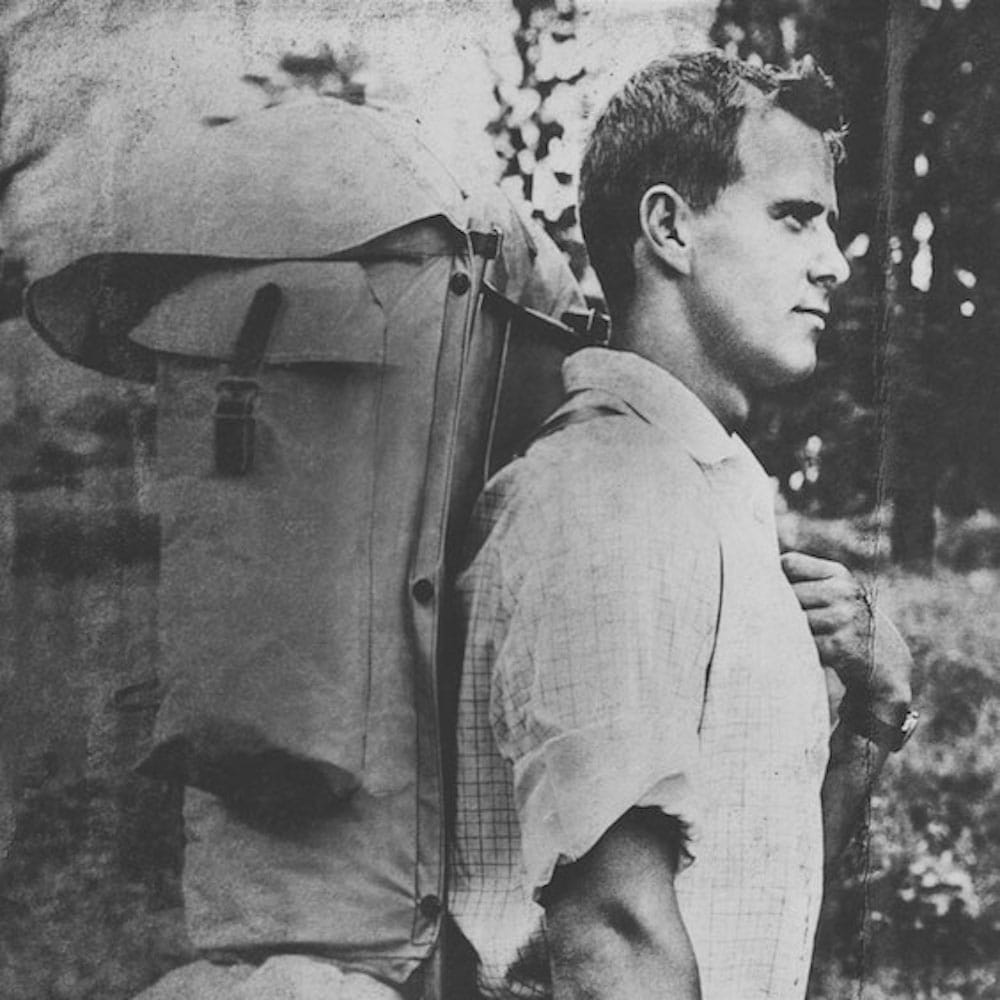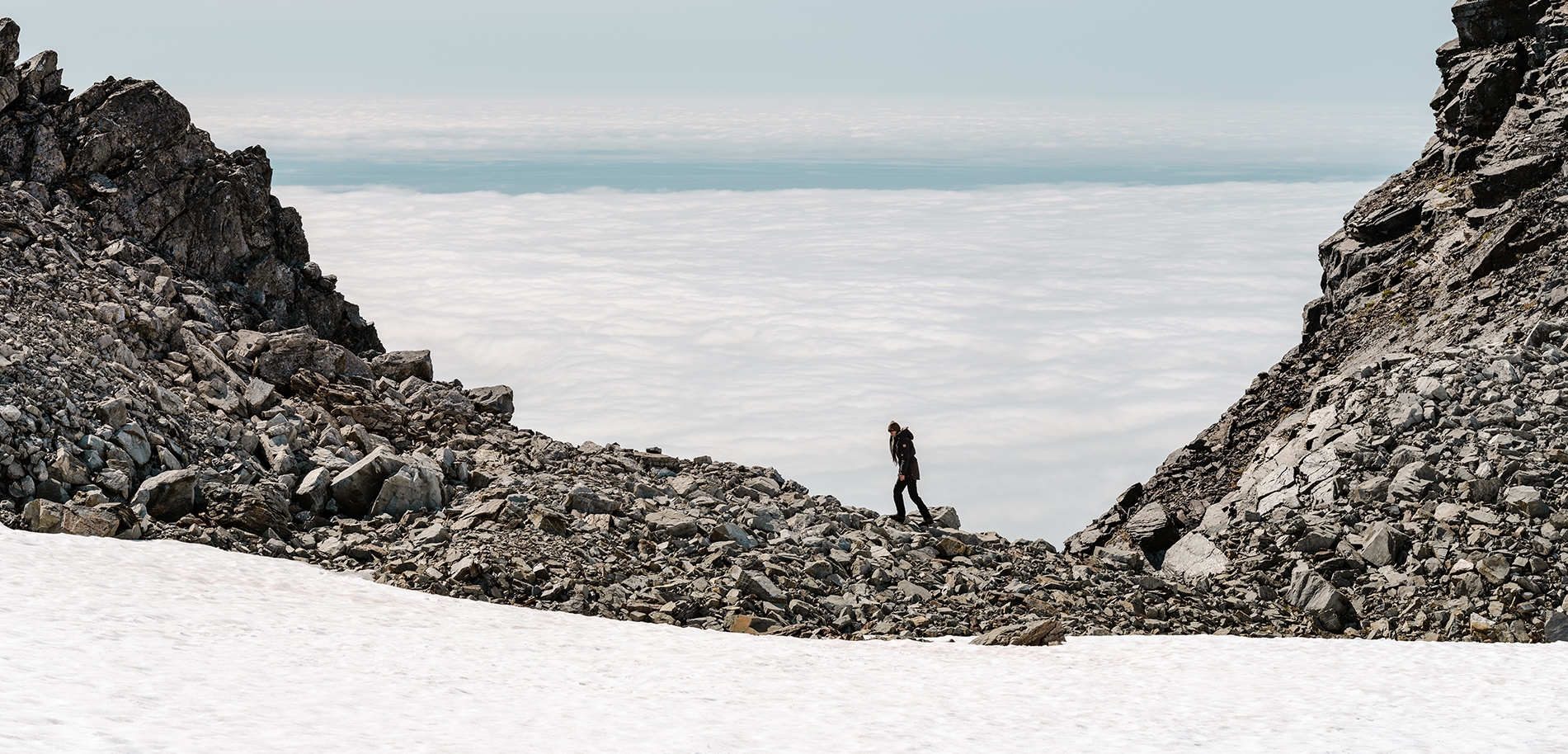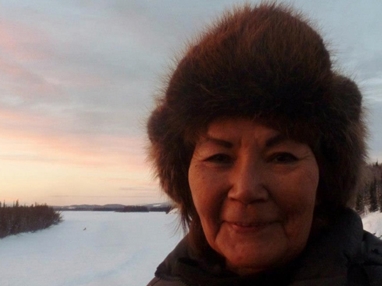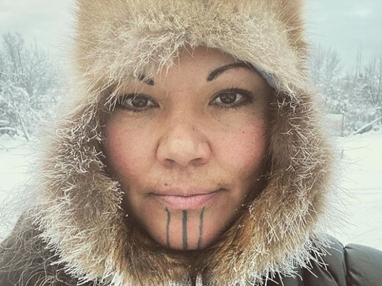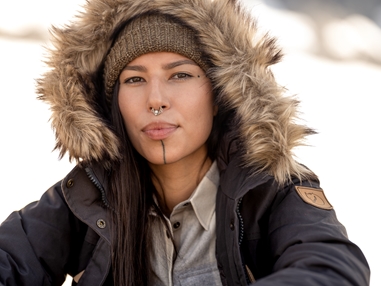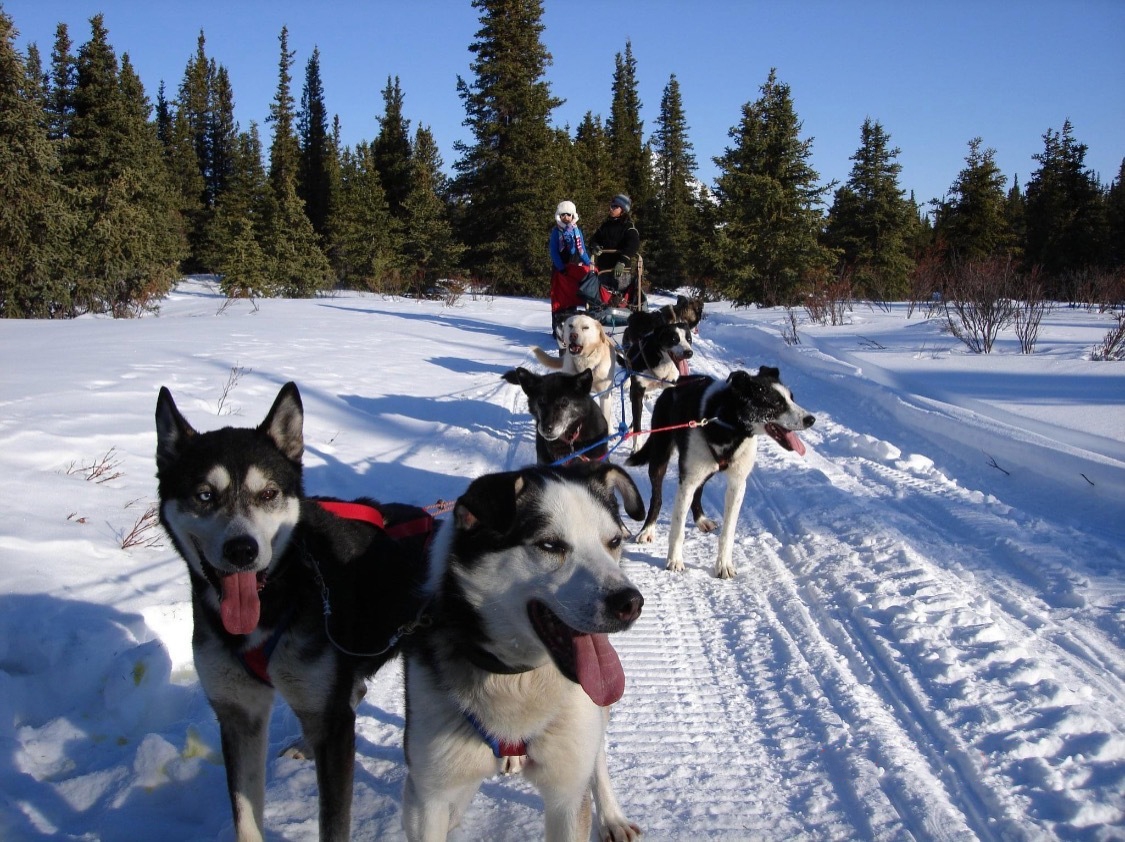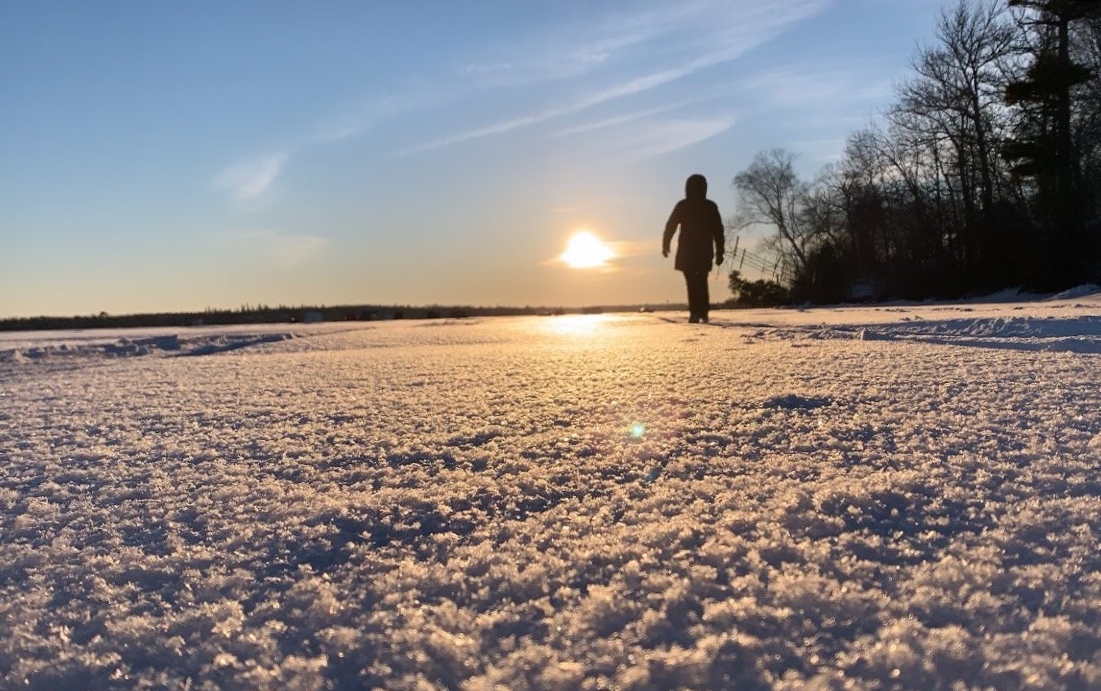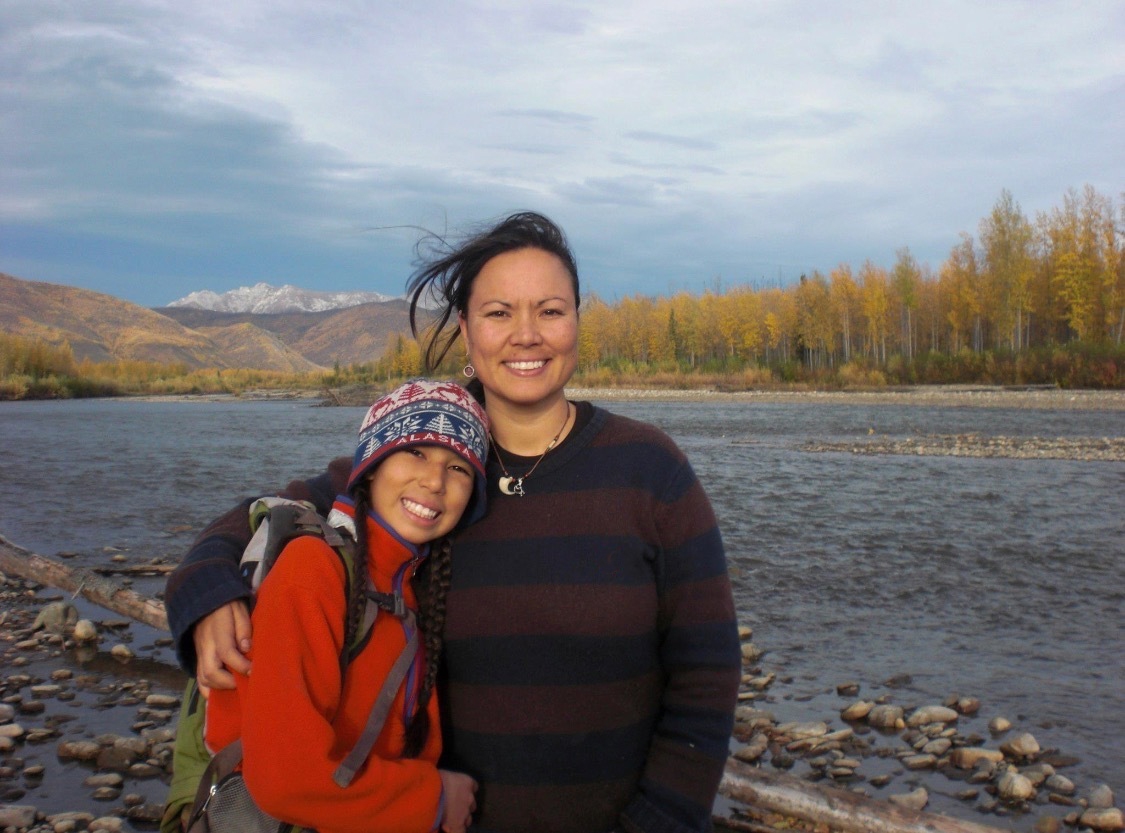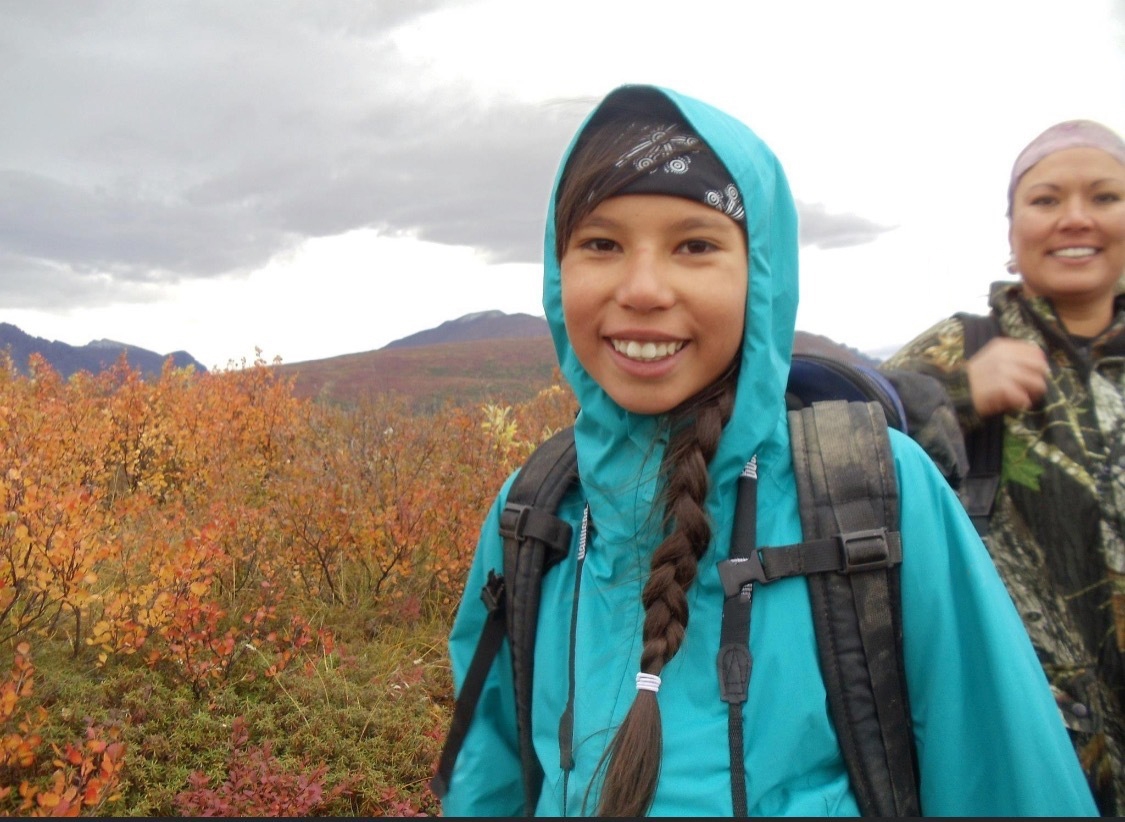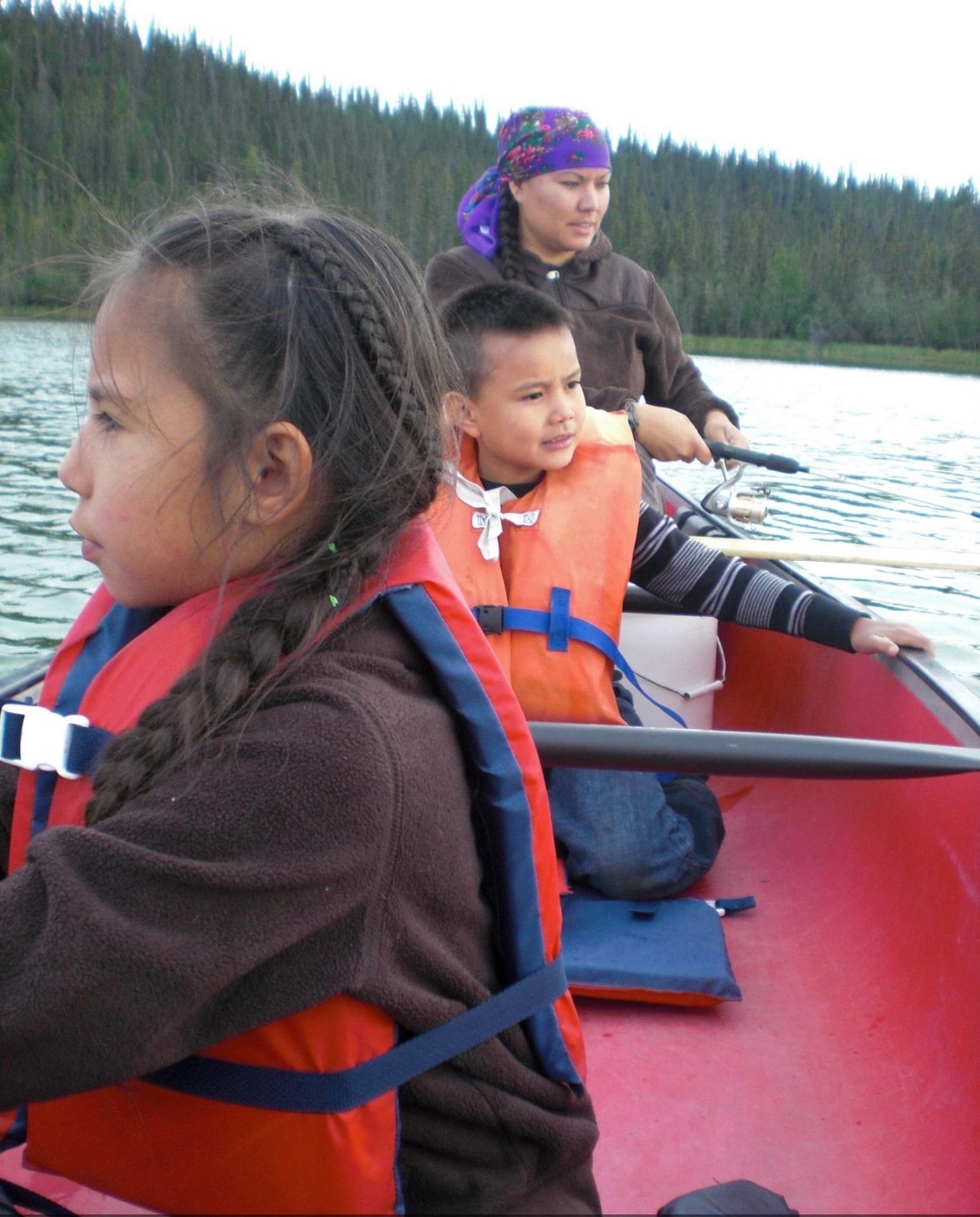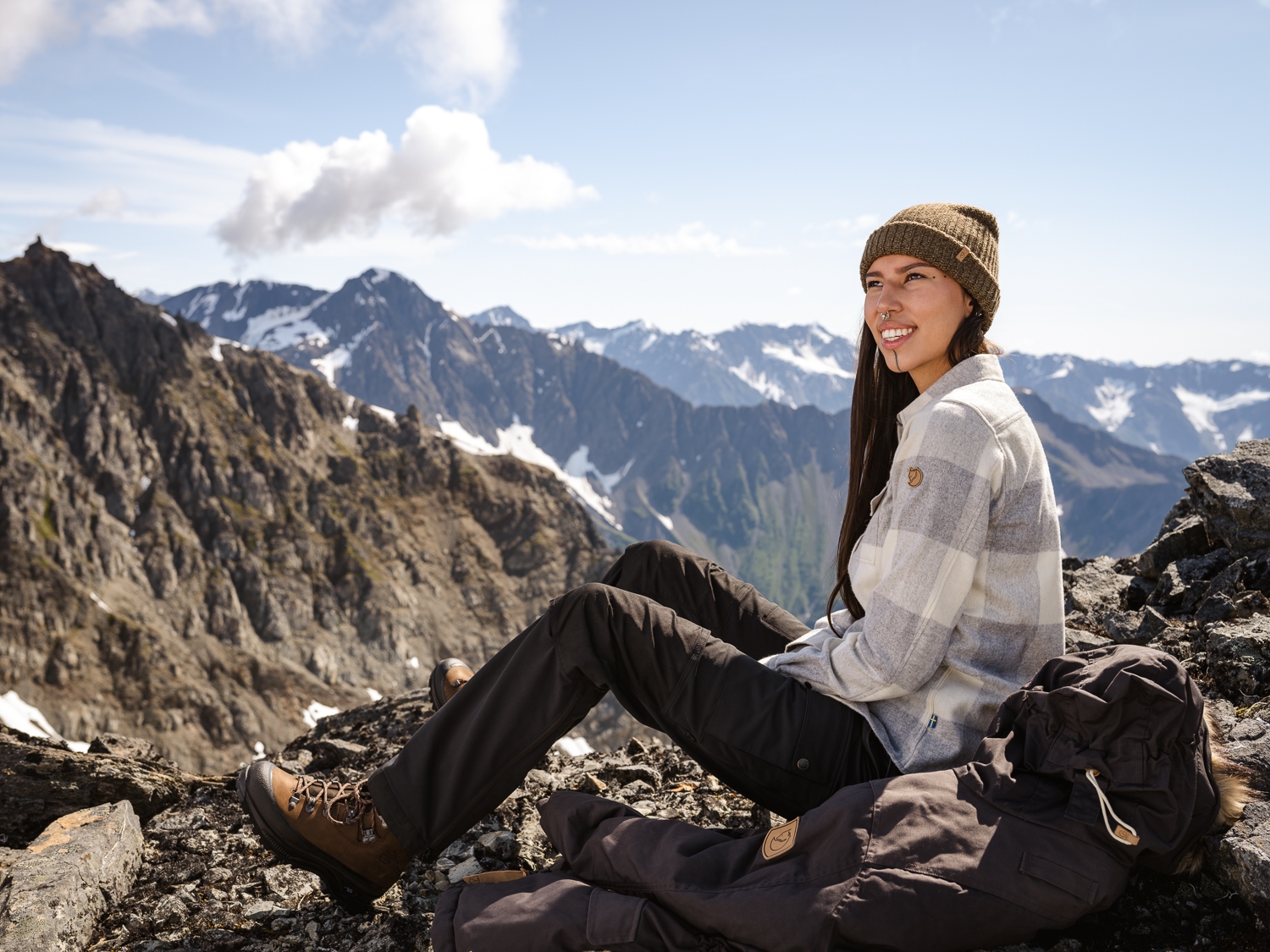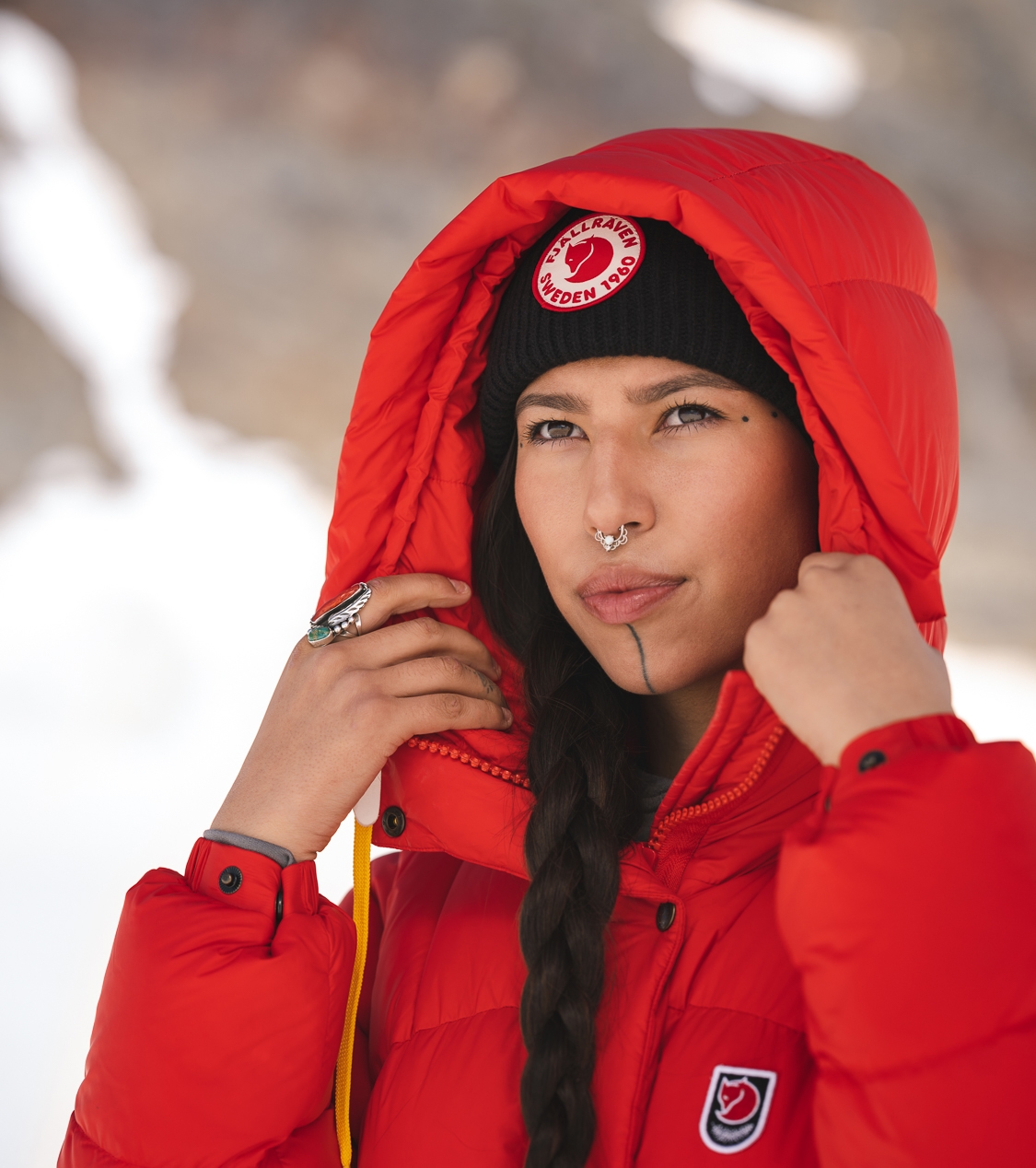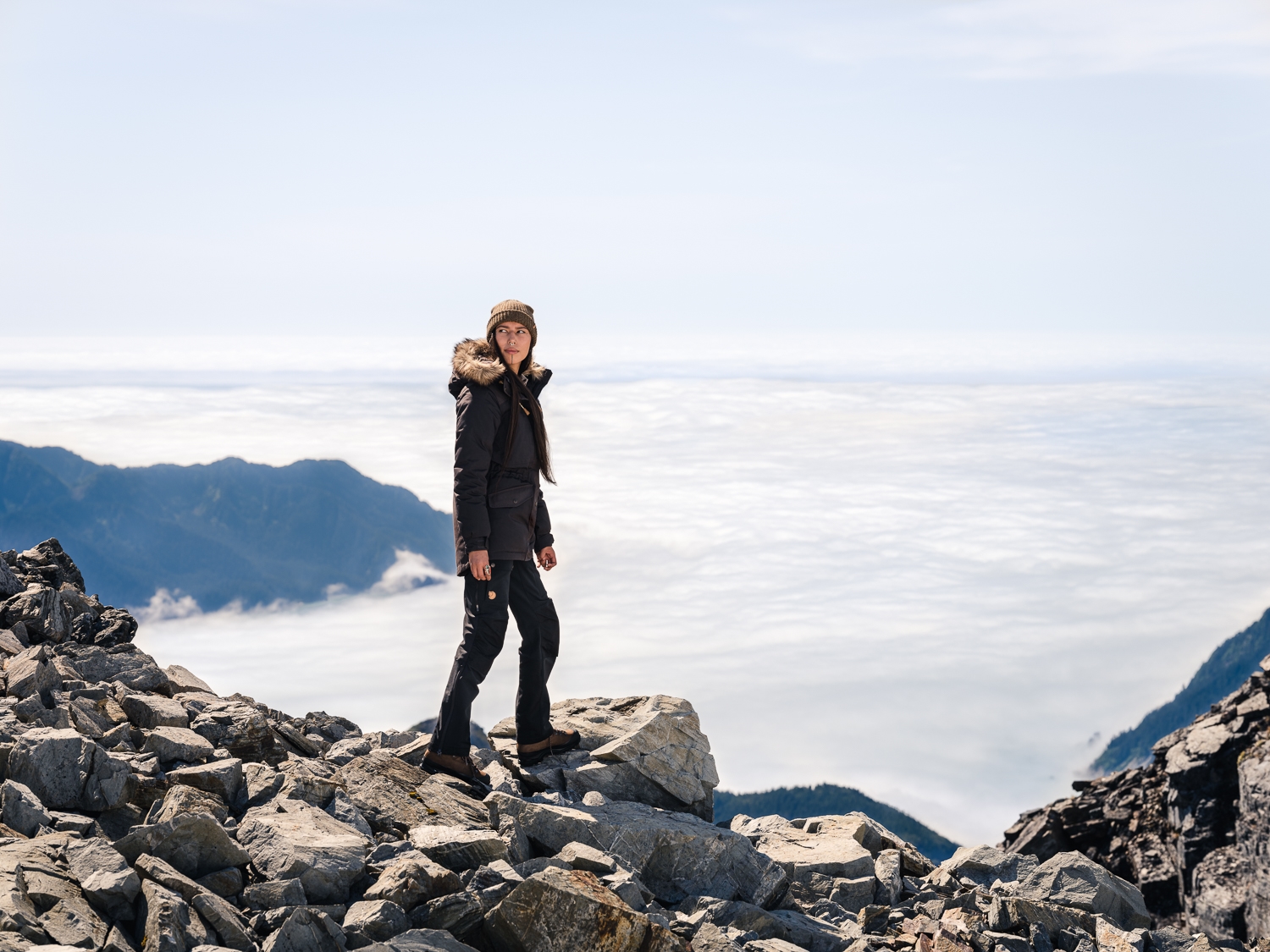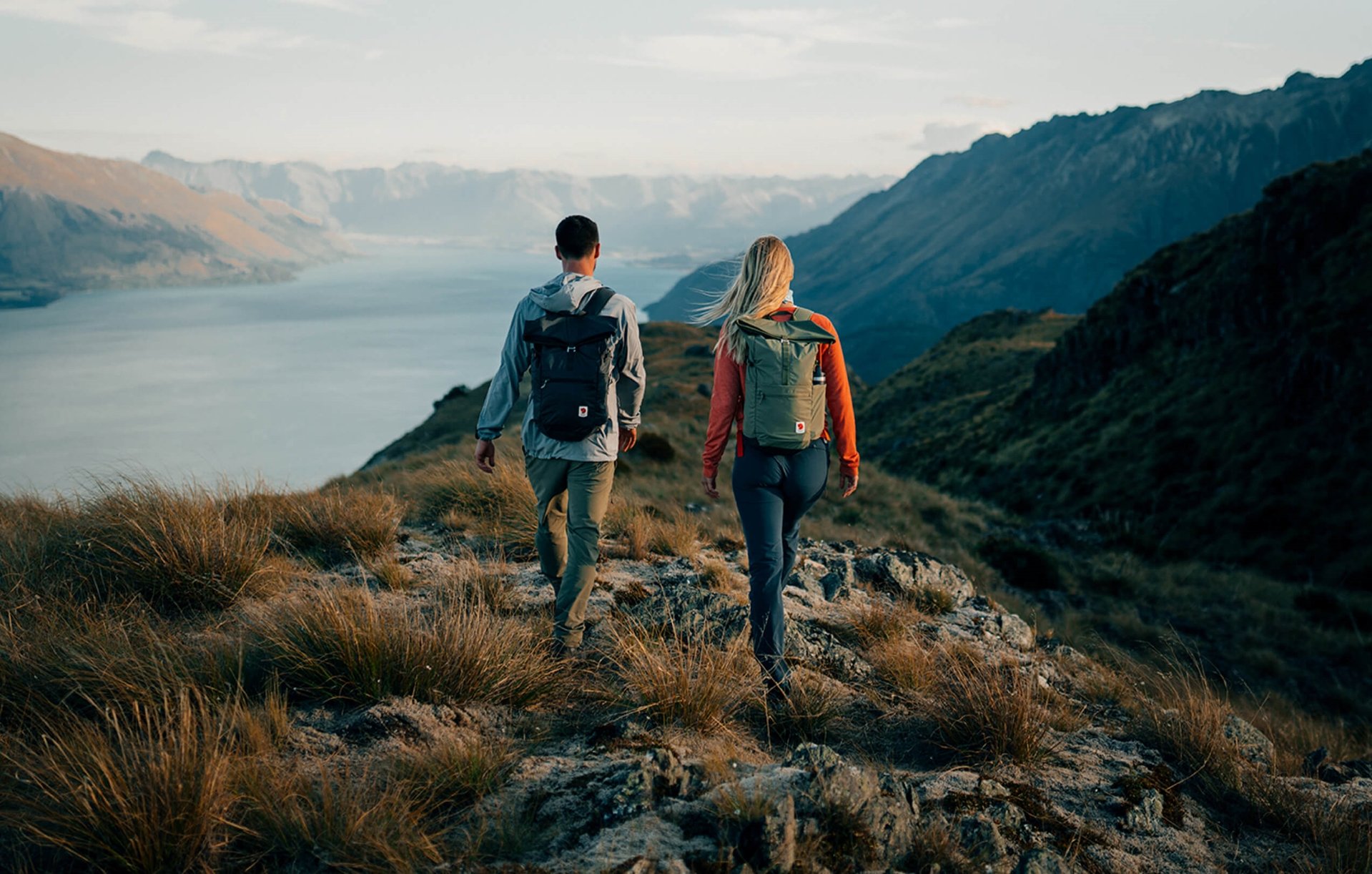
One of the unique qualities of the Fjällräven culture is the long-lasting and meaningful friendships we have with the people in our community who truly embody the values of our brand – that is to have a love for nature, deep regard for sustainability, and to display respect for all humans, animals and our environment.
At Fjällräven we love to celebrate with our friends. All of us have unique backgrounds and experiences that can be cherished by sharing our passion with others through education and the exchange of storytelling. The following interview showcases a prolific three-generational tribal leader matriarch originally from Eagle Village, Alaska on the Yukon River.
Meet grandmother and traditional artist of the family, Adeline Juneby Potts, her daughter, Jody Juneby Potts- Land Protector, hunter, and wilderness guide, and land protector grand-daughter, Quannah ChasingHorse, all of the Han Gwich’in, Oglala Lakota tribes. These three not only embody the values of our brand, but they also lead and act accordingly to meeting the present needs of their people, their land, and our environment working towards a more sustainable, and peaceful world.
Here are the cross-generational stories they shared:
Quannah, one of our traditions at Fjällräven is to share our favorite nature experience. To start off our conversation today, what is one of your favorite memories on your land?
Quannah: My favorite nature memory is a dog-mushing memory with my mom when we lived far out on the land and had a dog team. After the school day was done, I would usually arrive at home to my mom hooking up the dogs and getting them ready to go out for a run.
While she was preparing to take off, I was dressing in all my warm snow gear as fast as I could. When I was finally geared up, I hurriedly jumped on the sled with her. I remember being out on that narrow trail and feeling the dogs running on the snow under us while the wind blew over the top of our heads. My very favorite mushing memories are the ones when mom and I would go out late at night. I would gaze up at the sky to get away from all the noise of the day.
I can still recall hearing the dogs breathe and the soft sound of the sled runners on the snow. There were a few times while we were out when I looked up and saw the Northern Lights and shining stars. To this day I constantly gaze up at the sky as a reminder of those times, I’ve been doing this ever since I was a little girl.
Now more than ever nature is calling every one of us to act. It's crucial to remind people that nature within us and beside us. Jody, how do you see this?
Jody: Living with the land is who we are. We are land; it's not a separate thing from us. It’s a crucial part of who we are as people and our way of life. Simply being on the land was not only an essential part of surviving life but life itself… land is life.
As a parent, I naturally gravitated to this way on the land. From a very young age, I had my kids outside berry picking and hunting with me. Still today, my kids and I go out on long canoe trips. I do this to keep them comfortable and confident in their actions, even if it’s hard long hikes with heavy packs. My goal is to keep everything positive creating good experiences that they can carry with them instilling confidence and making sure they feel comfortable while constantly learning things along the way about land and life.
Adeline, what is the biggest gift you wanted to give your children and your grandchildren?
Adeline (Grandmother): We took care of the land wherever we were. You see, whenever we take care of something, we get more back. We respect the land, and the land keeps us fed. Everything was created for us to take care of: the land, fish, moose, and caribou. If you respect and take care of the land you can survive anywhere. It will take care of you. That's what I taught the kids.
Quannah you refer to yourself as a protector. Can you share what that means?
Quannah: It's the way of life that I'm protecting. I'm genuinely protecting my love and my people. For us, it's about our identity as indigenous people and what ties us to the lands. I protect the values my grandmother and my mother passed down in teachings, recognizing that the land will give back to us if you do good things with the land. I'm protecting a way of life.
We must keep practicing this sacred and valuable teaching of respect. This is a value that everyone can benefit from, not just indigenous people. All people, everybody is on the land, the land can take care of everyone.
Jody: Respecting the land means a lot of things and it means more than not littering. It means having true respect for it, keeping yourself in check because the land can be unforgiving. My parents taught me to be prepared, to never give up, and to be wise and awake when you go out. Respect means something deeper than just general respect, it’s the ability to understand that there are many elements, an unlimited amount. You can't be arrogant around these elements. We must remain humble and to provide for it, take care of the land and it will care for you.
Quannah, you have been given a special platform to be a role model. How does that feel to be given this platform to inspire with the wisdom that your mother and grandmother have taught and handed to you?
Quannah: It's not a lot, but at the same time, it is. I’m getting support and good energy, and a lot of love from people that I don't even know. There are many people reaching out to me, especially youth, more specifically, a lot of Alaskan Native youth from my community in Alaska. They thank me for being someone that they are now seeing in the world.
In the past, we have had a lot of misrepresentation and we've also been invisible. So, instead of seeing a lot of cultural appropriation and seeing people use us for various needs, they see me rising and taking that back. Representing real natives instead of Halloween costumes. I've had a lot of indigenous girls say, “I'm thankful and so happy and proud to see that you're out here doing this because we don't see a lot of it at all. And you're doing it your way.”
That's what I want. That's what I strive for, to encourage and inspire youth to use their individual voices and to recognize that we are beautiful, strong, resilient, and powerful. So, to answer your question, it feels good. It feels like I'm doing something to make a difference, and that's exactly why I don't want to be doing just anything with my gifts and values. I want to get my special message across. My goal is that I may not make the biggest difference in all people, but to make a powerful difference for a few people.
Jody: What makes Quannah such a powerful and effective advocate for protecting our land and our way of life is the fact that she was raised so close to the land, she CAN do it. Often, I take my kids back to the place where I grew up and we see many changes that are resulting from climate change. I'll point the changes out and explain them to my kids. Quannah's learning the science behind it, so she’s making those connections directly and can speak about it in her advocacy.
Those real-life experiences help her tell her story; the tradition of oral storytelling is a big part of her way of advocating. She's able to story-tell in a way that people can relate or connect with. She has an impactful voice that comes down through the matriarchy of our family. Our clans are passed down through our mothers. I get my clanship from my mom and then it's passed down to my daughter. As far as the three of us, we’re extremely close. My mom is the pillar of our whole big native family. She's the real matriarch. I grew up watching her be a strong leader and now I'm a tribal leader. Today, I see my daughter just step into this leadership so naturally without trying, without effort. Watching how it's also impacting a lot of different generations, especially the youth, is powerful.
The strong message of our durability commitment, "long life, less waste" is more important than ever. Our commitment is to inspire our users to own their gear and at the same time lower their environmental impact. What are your thoughts on this commitment?
Jody: The reality is that you might invest in gear at one point, but it'll last your lifetime. So, really over time, it’s not so expensive, it’s quality of life, for both people and the land we walk on. It will keep you comfortable in all kinds of elements. Fjällräven is getting everyday people out on the land, keeping them comfortable, safe, and healthy. My people are not wasteful people, they very much have been into using and reusing for years, it’s important to be kind to the land. We like your mission and philosophy; it's aligned with our beliefs and way of living. Your materials are durable, they'll keep us safe around the fire and they will last a very long time.
Jody, just like the way we started with Quannah sharing a favorite nature memory, do you mind sharing a story about your favorite experience on your land to inspire the Fjällräven community?
Jody: I want to share a memory of a favorite place where the kids and I would go up into the high mountains around our village. This place above the tree line and the brush line is where we would go on long walks and look for Caribou on the trails. Up in this high-high open country, birds could be in the thousands upon thousands.
Also, high above the bush line is rock wall barriers created by both the birds on the mountain and our people that have been there for many years. The rocks, piled in a pyramid, are all still there. When I'm up there with my kids, you can directly feel the presence of our ancestors and the spirit of our land. We think about the ancient ancestors of ours that put those rocks there while adding more rocks ourselves.
Adding rocks to those piles gives me the chills. When I'm up there I feel powerful just knowing that's where people have been for so long. We may be in a modern time, but when we go back to that land, there’s an instant connection to the past and to who we are. As far as being a parent to my three kids, the greatest joy of my life is taking them to that high place and making sure they remember that no matter where they are, deep in their heart, they will always be connected to this land and to their people, their community.
For more of Quannah and Jody's stories about their land, climate advocacy, and adventures in Alaska follow them on Instagram @quannah.rose and @Iron.jody
